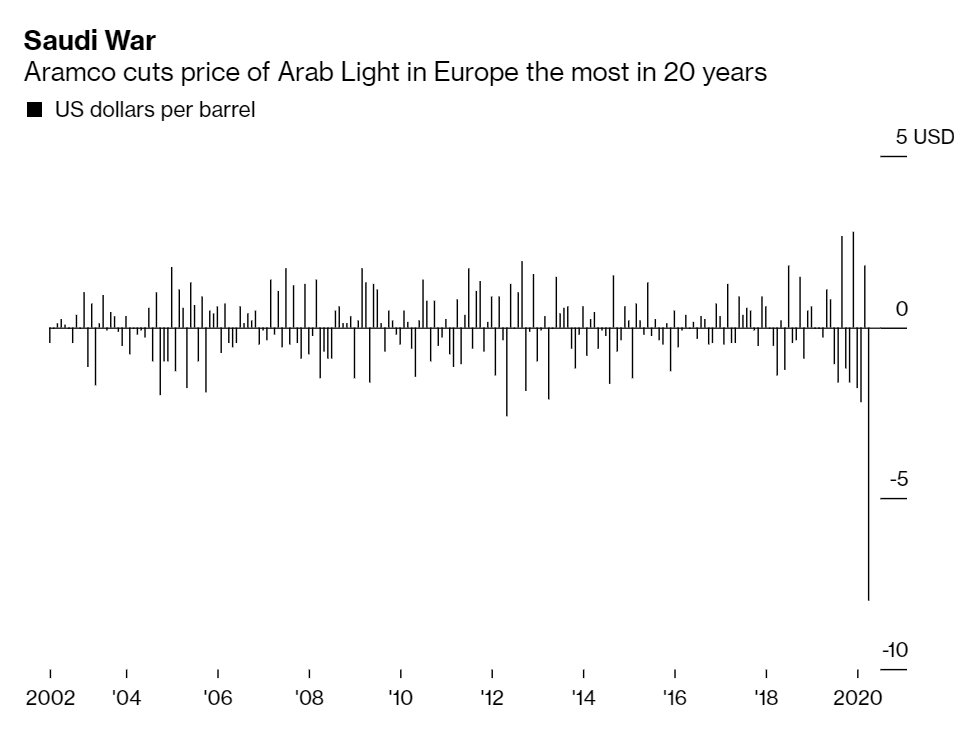bloomberg.com/opinion/articl…
But you really need to get past economics 101 to see what's going on here!
For one thing, taxes and producer profits mean that the crude price is less than half of the pump price of motor fuel, as @harrybenham_1 points out:
news.umich.edu/fuel-cost-of-d…
That means a price fall isn't going to lead automatically to a demand surge.
That makes it much cheaper to do the initial capital investment in an energy project.
This helps renewables because so much of their costs are up-front.
Renewables are more expensive to build but get cheaper over time because there's no fuel.
Lower capital costs help the players whose costs are up-front.
That's good because the world needs to do a hell of a lot of capex to decarbonize over the coming decade.
Beijing needs to put in a cracking pace of growth this year in spite of coronavirus if it wants to achieve this:
bloomberg.com/opinion/articl…
scmp.com/economy/china-…







